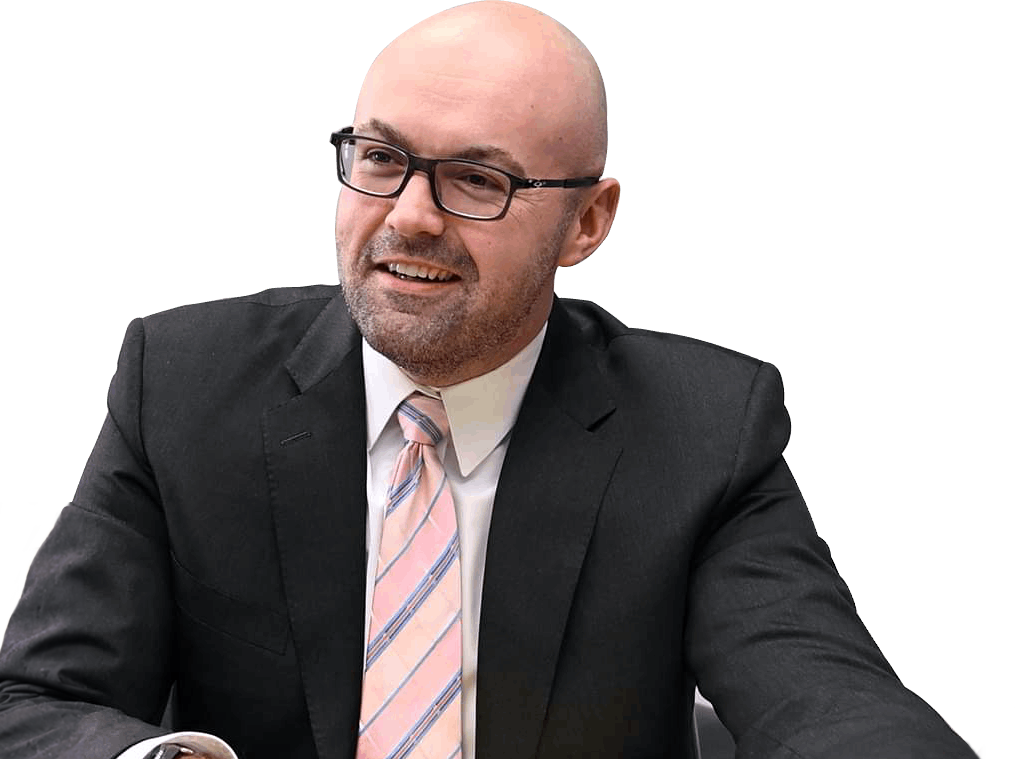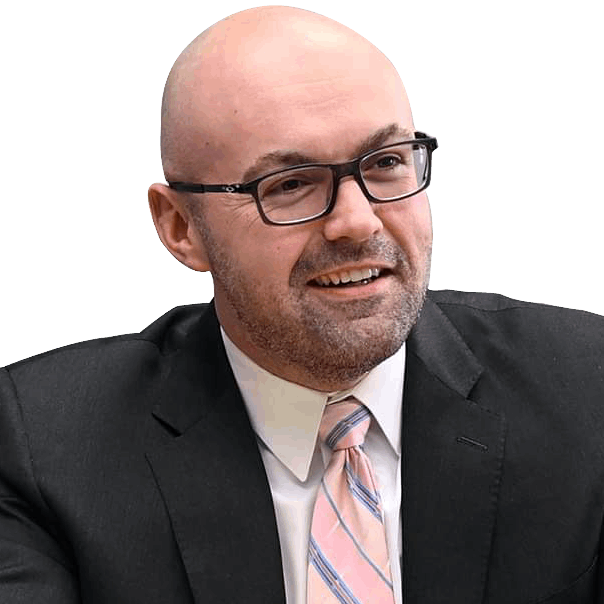If your loved one has suffered abuse or neglect in a Schaumburg nursing home, you have the right to take legal action. Nursing home residents deserve dignity, care, and protection, but too often, facilities fail in their duty. Many cases of abuse go unreported, leaving vulnerable seniors at risk. At Chicago Injury Lawyer, we are committed to holding negligent nursing homes accountable and securing justice for victims. Our experienced attorneys understand Illinois elder abuse laws and are prepared to fight for the compensation your family deserves. We provide dedicated legal representation to ensure that your loved one receives the care, respect, and protection they deserve.
Call us now at 312-261-5656 for a free, no-obligation consultation, available 24/7. With our no-fee-unless-we-win policy, you can focus on your recovery while we handle the rest.
Why Choose Chicago Injury Lawyer in Schaumburg?
- Experienced Legal Team: Our attorneys have handled numerous nursing home abuse cases in Cook County Court. We understand the complexities of elder abuse laws and work tirelessly to protect victims’ rights. Our legal expertise ensures that every case is pursued with the utmost diligence and attention to detail.
- Proven Track Record: We have successfully represented families throughout Schaumburg, securing justice and financial compensation for elderly abuse victims. Our history of favorable case outcomes speaks to our dedication and effectiveness. We have won settlements and verdicts that have helped families recover financially and emotionally from these devastating incidents.
- Compassionate Advocacy: We recognize the emotional toll nursing home abuse takes on families. Our team provides personalized legal support, guiding you through every step of the legal process with care and commitment. We listen to your concerns, investigate the abuse thoroughly, and fight aggressively for justice on behalf of your loved one.
Common Types of Nursing Home Abuse Cases in Schaumburg
- Physical Abuse: This includes hitting, slapping, or restraining residents inappropriately, leading to bruises, fractures, or other unexplained injuries. Staff or other residents may be responsible for such harm. Physical abuse can have lasting effects, including mobility issues, chronic pain, and emotional trauma.
- Neglect: Failing to provide basic needs such as food, water, hygiene, and medical care can lead to severe health consequences. Neglected residents may suffer from malnutrition, dehydration, bedsores, and infections. In some cases, neglect can lead to life-threatening conditions such as sepsis or severe weight loss.
- Emotional Abuse: Caregivers who intimidate, humiliate, or isolate residents cause severe emotional distress. Verbal threats, insults, or ignoring residents’ needs can lead to depression, anxiety, and withdrawal. Emotional abuse often goes unnoticed but can be just as harmful as physical abuse, leading to severe mental health issues.
- Financial Exploitation: Nursing home staff or even other residents may take advantage of elderly individuals by stealing money, forging signatures, or pressuring them into financial decisions that harm their well-being. This form of abuse can deplete a resident’s life savings and leave them unable to afford proper care.
- Medical Negligence: Failing to administer medications correctly, misdiagnosing illnesses, or ignoring medical conditions can put residents at serious risk. Delayed treatment or improper care may result in life-threatening consequences, including untreated infections or worsening chronic conditions.
Legal Rights & Compensation for Nursing Home Abuse Victims
- Medical Expenses and Rehabilitation Costs: Victims of nursing home abuse often require medical treatment, therapy, and long-term care due to injuries or neglect. Compensation can help cover hospital bills, medication, and rehabilitation services. Families should not have to bear the financial burden caused by a negligent facility.
- Pain and Suffering: Abuse and neglect can cause physical pain and long-term psychological trauma for elderly residents. Victims may receive compensation for the suffering endured due to mistreatment or inadequate care. Pain and suffering damages acknowledge the emotional and physical toll the abuse has taken on the resident.
- Emotional Distress: Nursing home abuse can lead to anxiety, depression, and emotional trauma. Families may seek damages for the emotional suffering caused by verbal abuse, isolation, or neglect. Emotional distress damages can help provide access to mental health support and therapy.
- Wrongful Death Claims: In cases where abuse or neglect leads to the death of a loved one, families may pursue a wrongful death lawsuit. Compensation can cover funeral costs, loss of companionship, and the emotional toll of losing a loved one. Holding negligent facilities accountable can also prevent future tragedies.
Steps to Take After Nursing Home Abuse in Schaumburg
- Document the Abuse: Take photos, record statements, and preserve medical records. Maintain a detailed record of any injuries, unusual behaviors, or complaints made by the victim.
- Report the Incident: File a complaint with the Illinois Department of Public Health and the Cook County Ombudsman Program. Reporting ensures that the facility is investigated and held accountable for its actions.
- Seek Medical Attention: Ensure the victim receives proper care and treatment. A medical professional can document injuries and provide necessary treatment to prevent further harm.
- Consult a Lawyer: An experienced nursing home abuse attorney can guide you through the legal process. Legal representation increases the likelihood of a successful case and ensures you understand your rights.
- Pursue Legal Action: Hold negligent facilities accountable and seek justice for your loved one. A legal claim can provide financial relief and protect other residents from similar mistreatment.
Relevant Local Resources in Schaumburg
- Schaumburg Police Department: If you suspect elder abuse or neglect, report it to the local authorities for immediate investigation.
- Address: 1000 W Schaumburg Rd, Schaumburg, IL 60194
- Phone: (847) 882-3586
- Amita Health Alexian Brothers Medical Center: Provides medical treatment and evaluations for nursing home abuse victims.
- Address: 800 Biesterfield Rd, Elk Grove Village, IL 60007
- Phone: (847) 437-5500
- Cook County Court: Handles legal proceedings related to elder abuse claims and lawsuits.
- Address: 50 W Washington St, Chicago, IL 60602
- Phone: (312) 603-6000
[trustindexn -oregistration=google]
Get Directions to Our Law Office
Visit us in Chicago for a free consultation
- Address: 101 N Wacker Drive, Suite 100B, Chicago, IL 60606 Get Directions
- Driving Directions: If you’re traveling from The Loop, head north on Wacker Drive. Our office is between Lake and Randolph Streets, easily accessible from I-90 and I-94.
- Parking Options: Convenient parking is available at nearby garages, such as the Wacker & Monroe Garage, and there are metered spaces along N Wacker Drive.
- Landmarks Nearby: Our office is just steps from the Chicago Riverwalk and close to The Loop, making it a convenient location for visitors.
Contact Us
Chicago Injury Lawyers
101 N Wacker Drive, Suite 100B
Chicago, IL 60606
Phone: (312) 261-5656
Email: contact@chicagoinjurylawyer.com
Hours: 24/7
Frequently Asked Questions (FAQs)
How do I prove nursing home abuse in Schaumburg?
You need evidence such as medical reports, witness statements, and documentation of injuries or neglect. Working with an attorney can help build a strong case.
What damages can I recover in a nursing home abuse lawsuit?
Victims may receive compensation for medical bills, pain and suffering, emotional distress, and wrongful death damages. The amount varies depending on the severity of the case.
How long do I have to file a nursing home abuse claim in Illinois?
Illinois law generally allows 2 years from the date of injury to file a claim, but exceptions may apply. Speaking with an attorney as soon as possible is recommended.
Can I sue a nursing home in Schaumburg for neglect?
Yes, nursing homes can be held legally responsible for failing to provide proper care, resulting in harm to residents. Legal action can prevent future incidents and hold facilities accountable.



